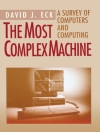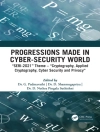This book discusses automated string-analysis techniques, focusing particularly on automata-based static string analysis. It covers the following topics: automata-bases string analysis, computing pre and post-conditions of basic string operations using automata, symbolic representation of automata, forward and backward string analysis using symbolic automata representation, constraint-based string analysis, string constraint solvers, relational string analysis, vulnerability detection using string analysis, string abstractions, differential string analysis, and automated sanitization synthesis using string analysis.
String manipulation is a crucial part of modern software systems; for example, it is used extensively in input validation and sanitization and in dynamic code and query generation. The goal of string-analysis techniques and this book is to determine the set of values that string expressions can take during program execution. String analysis can be used to solve many problems in modern software systems that relate to string manipulation, such as: (1) Identifying security vulnerabilities by checking if a security sensitive function can receive an input string that contains an exploit; (2) Identifying possible behaviors of a program by identifying possible values for dynamically generated code; (3) Identifying html generation errors by computing the html code generated by web applications; (4) Identifying the set of queries that are sent to back-end database by analyzing the code that generates the SQL queries; (5) Patching input validation and sanitization functions by automatically synthesizing repairs illustrated in this book.
Like many other program-analysis problems, it is not possible to solve the string analysis problem precisely (i.e., it is not possible to precisely determine the set of string values that can reach aprogram point). However, one can compute over- or under-approximations of possible string values. If the approximations are precise enough, they can enable developers to demonstrate existence or absence of bugs in string manipulating code. String analysis has been an active research area in the last decade, resulting in a wide variety of string-analysis techniques.
This book will primarily target researchers and professionals working in computer security, software verification, formal methods, software engineering and program analysis. Advanced level students or instructors teaching or studying courses in computer security, software verification or program analysis will find this book useful as a secondary text.
Cuprins
1 Introduction: String Manipulating Programs and Difficulty of Their Analysis.- 2 String Manipulating Programs and Difficulty of Their Analysis.- 3 State Space Exploration.- 4 Automata Based String Analysis.- 5 Relational String Analysis.- 6 Abstraction and Approximation.- 7 Constraint-based String Analysis.- 8 Vulnerability Detection and Sanitization Synthesis.- 9 Differential String Analysis and Repair.- 10 Tools.- 11 A Brief Survey of Related Work.- 12 Conclusions.












